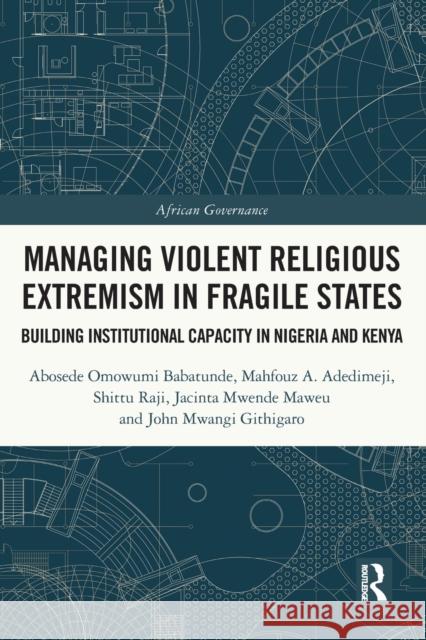Managing Violent Religious Extremism in Fragile States: Building Institutional Capacity in Nigeria and Kenya » książka
Managing Violent Religious Extremism in Fragile States: Building Institutional Capacity in Nigeria and Kenya
ISBN-13: 9781032111124 / Angielski
Managing Violent Religious Extremism in Fragile States: Building Institutional Capacity in Nigeria and Kenya
ISBN-13: 9781032111124 / Angielski
(netto: 208,57 VAT: 5%)
Najniższa cena z 30 dni: 201,44
ok. 16-18 dni roboczych.
Darmowa dostawa!
This book examines how African states can build the institutional capacity to better prevent, manage and cope with the new security challenges posed by violent religious extremism. This study of Nigeria and Kenya reflects on why insurgency in Kenya has not escalated to full blown terrorism as it has with Boko Haram in Nigeria.
This book examines how African states can build the institutional capacity to better prevent, manage and cope with the new security challenges posed by violent religious extremism.
Despite the evidence that violent religious extremism is exacerbated by underlying social, political, economic and governance factors, many states have focused their efforts only on reactive and coercive response strategies, overlooking more long-term measures. This comparative study of Nigeria and Kenya reflects on why insurgency in Kenya has not escalated to full blown terrorism as it has with Boko Haram in Nigeria, in spite of the similarities in relatively weak institutions of governance and colonial legacies across the two countries. The book interrogates the policy and institutional responses that have been put in place in both countries to address security challenges, and the extent of their efficacy in light of the intricate networks of politics, governance, corruption, poverty and violence and the relative fragility of state institutions. The authors highlight the areas of convergence and divergence in institutional capacities and recommend policies to enhance the capacity of institutions to manage violent religious extremism.
This book will be of interest to scholars of African Politics, Security, Peace Studies and Terrorism.











